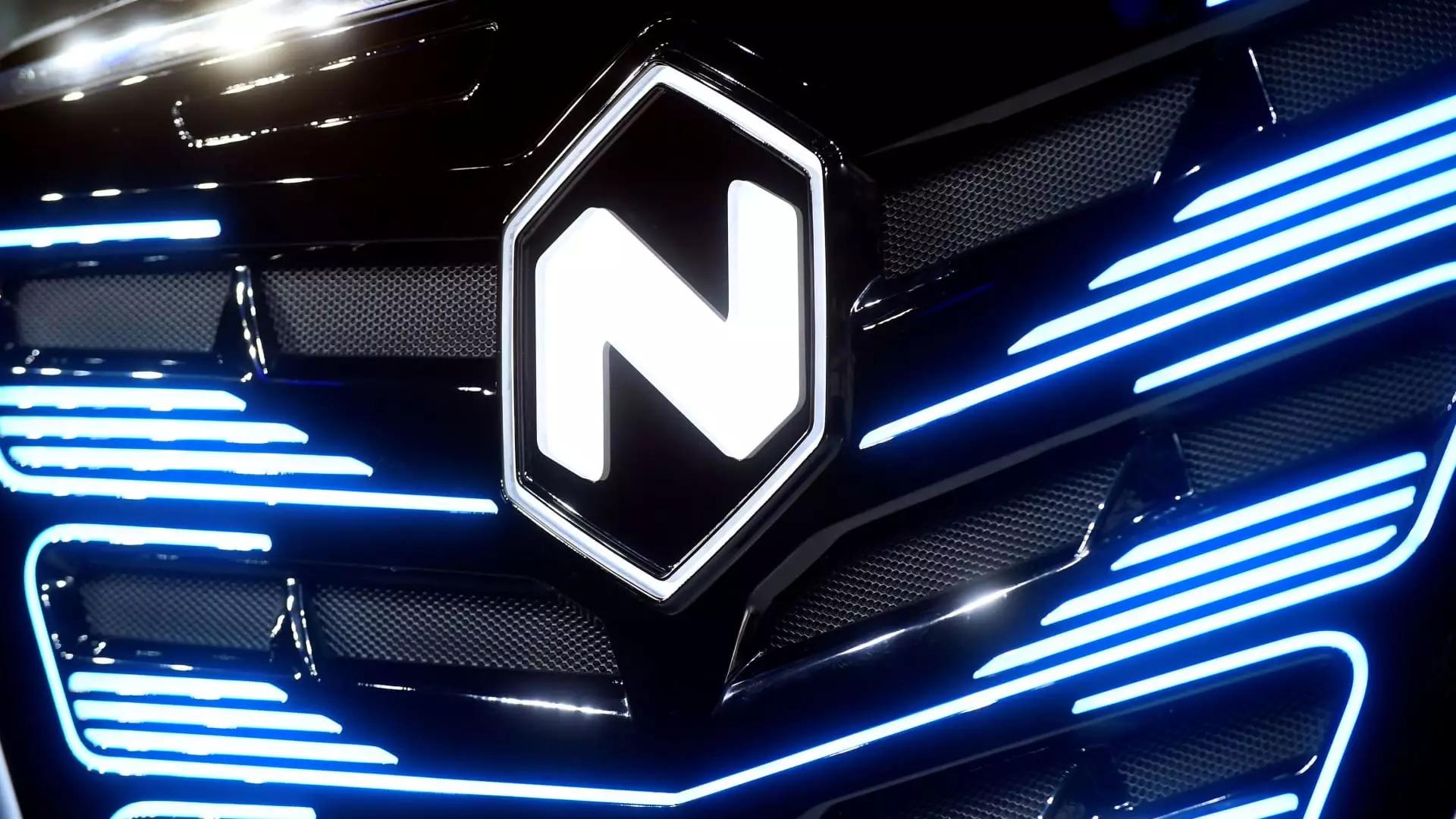In the rapidly evolving landscape of electric vehicles (EVs), few stories capture the imagination like that of Nikola Corp. Once celebrated as the rising star of the automobile industry, the company has now become a cautionary tale, emblematic of the pitfalls associated with hype-driven startups. Just recently, Nikola had to file for bankruptcy protection, a move that starkly highlights the challenges faced by fledgling automotive companies in securing sustainable operations. This article delves into the myriad factors that contributed to Nikola’s downfall while examining its past glories and future possibilities.
Nikola’s bankruptcy filing is a significant milestone in its tumultuous history. Announcing its plans to pursue an auction process for its assets, the company stated it retained $47 million in cash, primarily earmarked for navigating the complexities of its Chapter 11 proceedings. CEO Steve Girsky, confronted with this somber reality, noted that like many of its counterparts in the EV sector, Nikola grapples with vast market uncertainties. The once-optimistic projections have eroded under mounting financial pressures and operational hurdles, forcing the board to conclude that bankruptcy is the most viable strategy for salvaging its remaining assets and interests.
The proposed asset sale, pending court endorsement, raises questions about the future of Nikola Corp. Existing stakeholders, investors, and potential buyers are left to navigate this uncertain landscape where Nikola’s once-coveted technologies and innovations might end up being sold for a fraction of their initial valuation.
Examining Nikola’s ascent is akin to watching a shooting star streak across the night sky. At one point, the company enjoyed an impressive market valuation exceeding $30 billion, surpassing even the venerable Ford Motor Company. In 2020, the excitement surrounding Nikola was palpable, fueled by a high-profile partnership with General Motors, which included a $2 billion investment. However, this excitement was short-lived as it collided with the harsh realities of business, governance failures, and ethical violations that characterized Nikola’s trajectory.
The scandal involving Trevor Milton, Nikola’s founder and former CEO, serves as a critical turning point in the narrative. Milton’s conviction for fraud is emblematic of a broader culture within the startup that prioritized aggressive growth and image over operational integrity. Accusations initiated by short-seller Hindenburg Research shed light on the misleading claims surrounding Nikola’s advanced technologies, unraveling the company’s credibility and investor confidence in the process.
At the heart of Nikola’s struggles lies its inability to effectively transition from concept to production. The firm’s foray into manufacturing zero-emission trucks only yielded a disappointing 600 vehicles by the end of the third quarter of 2022. Furthermore, many of these vehicles encountered defects that necessitated costly recalls, steepening the company’s financial burden. This reality starkly contrasts the ambitious production targets and groundbreaking innovations that initially attracted investors and media attention.
Following Milton’s departure and Girsky’s ascent to the CEO role, Nikola has been attempting to pivot its focus back to production and growth. However, the lack of operational cash flow has stifled these efforts. Recently, Girsky acknowledged the need for strategic partnerships to stabilize the business, but the underlying financial instability raises red flags about the feasibility of such collaborations.
Nikola’s tale is not just one of an individual company’s failure; it lays bare the struggles that have pervaded the electric vehicle industry as a whole. From fraudulent activities to financial instability, numerous EV startups have faced similar challenges, leading to regulatory scrutiny, market skepticism, and an increasing number of bankruptcies. The wave of SPAC mergers that initially symbolized innovation has, in many cases, devolved into sobering reminders of the risks inherent in speculative investments.
Nikola’s stock price, which has plummeted to below $2 per share, underscores the stark shift in investor sentiment. After peaking at nearly $80 in mid-2020, the reality of Nikola’s performance has grimly illustrated the volatility of the startup ecosystem. Many investors now find themselves questioning whether these once-promising companies can recover or if they will continue to serve as cautionary tales.
Nikola Corp.’s journey encapsulates the excitement and peril embedded within the electric vehicle market. As the company enters bankruptcy and seeks to auction its assets, the implications ripple beyond its immediate stakeholders. This narrative serves as a crucial reminder that while innovation drives progress, integrity, operational viability, and transparent governance are paramount for sustaining growth and building trust in the competitive automotive landscape. The road ahead remains uncertain for both Nikola and the broader electric vehicle industry, yet the lessons gleaned from this saga will resonate for years to come.

